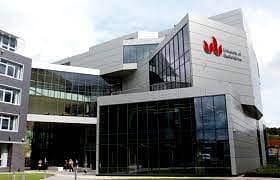On this course, you develop a broad range of skills in pharmacology and health sciences, studying areas such as chemistry; microbiology; biochemistry; anatomy and physiology; cell biology; and pharmaceutical sciences.
From this firm foundation, in your second and third years, your studies develop to include subjects such as immunology; pharmacogenetics; translational medicine; toxicology; and drug dispensing and delivery.
Practical laboratory work enables you to apply and develop your skills, while your final-year independent project and dissertation allow you to research and investigate a specific subject in detail.
Why choose this course?
- Benefit from a degree that trains you in both the traditional areas of pharmacological research and new, emerging areas important for the future of the pharmaceutical industry
- Build your practical skills in state-of-the-art laboratories in our modern STEM building
- Follow a career in a field that is one of the most research-led in the UK and includes pharmaceuticals, cosmetics, agrochemicals and veterinary medicine
- Gain a sought-after qualification in an area where a projected major skills gap has been identified
- Study a curriculum aligned to the areas of need identified by the British Pharmacological Society, including public health science and healthcare policy
- Gain valuable work experience through the School of Life Sciences’ strong links to the clinical and industrial sectors
- Take the course over four years and include a fee-free year in industry, gaining work experience, building your CV and making contacts for the future
- If you need to step up into higher education, start with a Foundation Year which guarantees a place on the degree course
Unit Information - What will I learn?
Units
- Cell Biology (BHS012-1) Compulsory
- Chemistry (BHS022-1) Compulsory
- Human Anatomy And Physiology (BHS004-1) Compulsory
- Microbiology And Biochemistry (BHS002-1) Compulsory
- Molecular Genetics (BHS016-1) Compulsory
- Skills In Pharmaceutical Sciences (BHS011-1) Compulsory
- Clinical Pharmacology And Public Health (BHS028-2) Compulsory
- Drug Development (BHS024-2) Compulsory
- Human Metabolism (BHS023-2) Compulsory
- Immunology (BHS027-2) Compulsory
- Medical Physiology (BHS026-2) Compulsory
- Pharmacology (BHS021-2) Compulsory
- Skills In Science (BHS022-2) Compulsory
- Drug Delivery (BHS035-3) Compulsory
- Drug Dispensing And Healthcare Policy (BHS033-3) Compulsory
- Pharmacogenetics (BHS028-3) Compulsory
- Pharmacology Of Disease (BHS032-3) Compulsory
- Pharmacology Research Project (BHS034-3) Compulsory
- Toxicology (BHS031-3) Compulsory
- Translational Medicine (BHS029-3) Compulsory
How will I be assessed?
Assessment is integral in all units to check that you have met the threshold standards expected of all graduates. They are also linked to learning, designed to develop key subject specific and transferable skills for future employment. The requirements of each assessment will be detailed in a formal assessment brief document and discussed in teaching sessions. Units with single assessments will be supported by formative development. The assessment tasks will include: - End of unit examination (unseen written examinations); - Problem-based learning, based on case studies, with poster presentation of findings; - Laboratory notebook and laboratory reports; - Literature review; - Business proposal; Oral presentation
